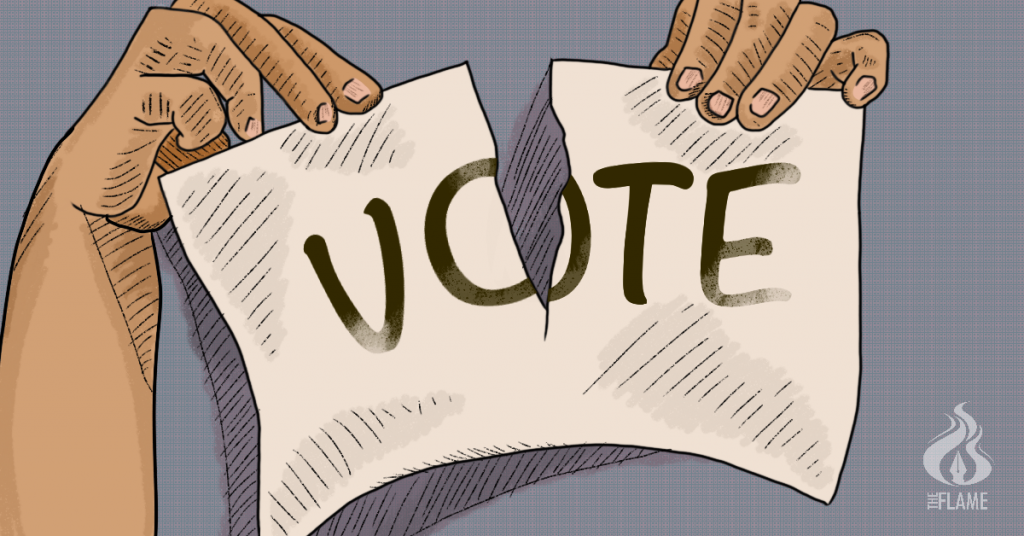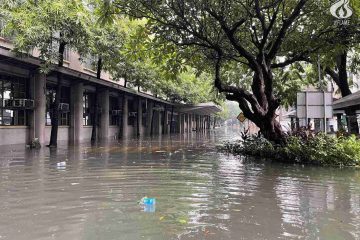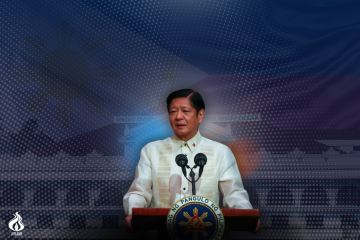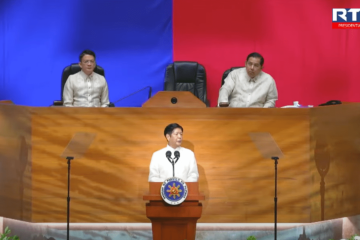
DISAPPOINTMENT and apathy toward politics discourage some Filipinos from exercising their right to vote, UST political science professors said.
Asst. Prof. Ronald Castillo said some people remain hesitant to vote because they have not felt any improvement and have not seen a resolution to the country’s problems
“There are members who choose not to participate anymore because they are not seeing anything good about what’s going on,” Castillo told The Flame.
Some voters, Castillo added, may be viewing politics as dirty and a “lowered kind of human activity.”
Asst. Prof. Froilan Calilung shared a similar observation, saying the lack of faith and confidence in the electoral system is a factor in public distrust of elections
“It’s possible that some of our fellow Filipinos no longer trust the process. I mean the Comelec (Commission on Elections) has already been tainted with issues then and even now,” Calilung said.
Among the issues that hounded Comelec are the cancellation of the final installment of PiliPinas Debates 2022, which stemmed from the failure to secure a P14 million payment to the poll body’s event partner and venue and defective counting machines.
Instructor Amr Sison claimed that the country usually records a higher voter turnout during national elections than during midterm polls.
Comelec recorded an 81.95-percent voter turnout during the 2016 national elections and 75.90-percent turnout during the 2019 midterm elections
Despite the high voter turnouts, many Filipinos did not participate in the electoral process. Only 44.5 million out of 54.3 million and 46.9 million out of 61.8 million registered voters exercised their rights to suffrage in the 2016 and 2019 elections, respectively
Sison said the COVID-19 pandemic is also a significant factor in voter hesitancy, citing a survey suggesting that a voter turnout decline is possible if another surge happens.
However, Sison and Calilung believe Filipinos who did not vote will not influence the election process or results.
“From what I see, there is a greater deal of involvement. Political consciousness is very high, you can see it not only in the streets, even on social media. And awareness is also very high. And I know for a fact that it will translate into direct physical involvement, which means that these people will really flock to voting precincts come May 9,” Calilung said.
Voters’ education needed
Castillo said substantial but engaging political discourse can persuade the public to exercise their right to vote
“The first thing to do is engage the person in a fun way while at the same time provide a substantive conversation, so that you can usher people to actually participate in the politics of elections,” he said.
Sison said voter’s rights education could combat voter apathy
“One major concern here is how can we sustain the constant participation of the next generation? We can’t say if their participation will remain high. Maybe it’s more appropriate to have an intensified voter’s right education,” Sison added.
Calilung believes that a “clear-cut electoral reform” is needed to address voter apathy. Such a reform would protecyt the electoral system’s integrity and ensure proper voter literacy, he added
“I think we also need to look into the systems in place. If you could have a Comelec that is more credible, that has more integrity, that is not going to be partisan or biased to several candidates or several parties, then that’s good,” Calilung said
There are about 67.5 million locally registered voters in this year’s elections, almost six million higher than that of 2019, according to Comelec data. F – K. K. Chan and N. B. Bautista



